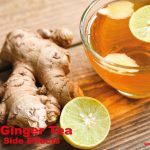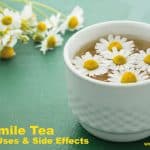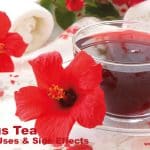Ashwagandha, also known as Withania somnifera or Indian ginseng, is a medicinal herb native to India and parts of Africa. It has been used for centuries in Ayurvedic medicine, the traditional medicine system of India, to treat a wide range of health conditions. Ashwagandha is a perennial shrub with small green leaves and yellow flowers. Its roots and berries are used medicinally.
Ashwagandha is known for its adaptogenic properties, meaning it can help the body adapt to and cope with physical, emotional, and environmental stress. It is believed to balance the body’s systems and restore balance to the mind and body. In traditional Ayurvedic medicine, Ashwagandha is often used as a general tonic to promote overall health and well-being. It is also used to treat specific conditions such as anxiety, insomnia, and inflammation.
In recent years, Ashwagandha has gained popularity for its potential health benefits and has been the subject of numerous scientific studies. It is available in various forms, such as capsules, powders, and tinctures. It is important to note that while Ashwagandha has a long history of use and is generally considered safe, it is always best to consult with a healthcare professional before adding any new supplement to your health regimen.
Traditional uses of Ashwagandha
In Ayurvedic medicine, Ashwagandha is considered a Rasayana, a type of herb that is believed to promote physical and mental health and longevity. It is used to treat a wide range of health conditions and is believed to have many beneficial effects on the body. Some traditional uses of Ashwagandha in Ayurvedic medicine include:
- As a general tonic: Ashwagandha is often used as a general tonic to promote overall health and well-being. It is believed to support the immune system, improve physical strength and energy, and enhance mental clarity and focus.
- For stress and anxiety: Ashwagandha is known for its adaptogenic properties, which means it can help the body adapt to and cope with stress. In Ayurvedic medicine, it is commonly used to treat anxiety, stress, and insomnia.
- For inflammation: Ashwagandha is believed to have anti-inflammatory effects and is traditionally used to treat conditions such as arthritis and asthma.
- For reproductive health: Ashwagandha is believed to have aphrodisiac properties and is traditionally used to improve fertility and sexual function in both men and women.
- For cognitive function: Ashwagandha is believed to improve memory and cognitive function and is traditionally used to treat conditions such as dementia and Alzheimer’s disease.
Chemical Constituents
Ashwagandha contains a number of chemical components that are believed to contribute to its medicinal properties. Some of the key chemical components found in Ashwagandha include:
- Withanolides: Withanolides are a class of compounds that are found in Ashwagandha and are believed to have a number of medicinal properties. Withanolides are thought to have anti-inflammatory, antioxidant, and adaptogenic effects, and may also have immune-boosting and anti-tumor properties.
- Alkaloids: Alkaloids are compounds that are found in plants and are known for their pharmacological effects on the human body. Ashwagandha contains several alkaloids, including somniferine and somnine, which are believed to have sedative and anxiolytic (anxiety-reducing) effects.
- Iron: Ashwagandha is a good source of iron, which is important for carrying oxygen to the body’s cells and tissues. Iron is also essential for the production of collagen, a protein that helps to form the body’s connective tissues.
- Choline: Choline is a nutrient that is important for brain function and the metabolism of fats in the body. Ashwagandha contains choline, which may contribute to its cognitive-enhancing effects.
Medicinal properties
Ashwagandha is a medicinal herb that is believed to have a number of medicinal properties. Some of the known medicinal properties of Ashwagandha include:
- Anti-inflammatory: Ashwagandha is believed to have anti-inflammatory effects, which means it may help to reduce inflammation in the body. Inflammation is a natural response to injury or infection, but chronic inflammation has been linked to a number of health conditions, including heart disease and cancer.
- Antioxidant: Ashwagandha is believed to have antioxidant effects, which means it may help to neutralize harmful molecules called free radicals that can damage cells and contribute to the development of chronic diseases.
- Adaptogenic: Ashwagandha is known for its adaptogenic properties, which means it can help the body adapt to and cope with physical, emotional, and environmental stress. Adaptogens are believed to help balance the body’s systems and restore balance to the mind and body.
Health Benefits
Stress and Anxiety
There is some evidence to suggest that Ashwagandha may be effective in reducing stress and anxiety symptoms. Here are a few studies that have specifically looked at the effects of Ashwagandha on stress and anxiety:
- A study published in the Journal of the American Medical Association found that Ashwagandha was effective in reducing stress and anxiety in adults with a history of chronic stress. The study included 64 participants who were given either a placebo or a high-concentration full-spectrum Ashwagandha extract for 8 weeks. The group taking Ashwagandha had a significant reduction in stress and anxiety scores, as well as improvements in sleep quality and other markers of well-being.
- A study published in the Indian Journal of Psychological Medicine found that Ashwagandha was effective in reducing stress and anxiety in medical students. The study included 70 medical students who were given either a placebo or a high-dose Ashwagandha extract for 60 days. The group taking Ashwagandha had a significant reduction in stress and anxiety scores, as well as improvements in memory and cognitive function.
- A study published in the Journal of Alternative and Complementary Medicine found that Ashwagandha was effective in reducing stress and anxiety in healthy adults. The study included 64 healthy adults who were given either a placebo or a high-dose Ashwagandha extract for 60 days. The group taking Ashwagandha had a significant reduction in stress and anxiety scores, as well as improvements in memory and cognitive function.
Improve cognitive function and memory
There is some evidence to suggest that Ashwagandha may improve cognitive function and memory in both healthy individuals and those with conditions such as dementia or Alzheimer’s disease. Here are a few studies that have specifically looked at the effects of Ashwagandha on cognitive function and memory:
- A study published in the Journal of Alternative and Complementary Medicine found that Ashwagandha improved memory and cognitive function in healthy adults. The study included 64 healthy adults who were given either a placebo or a high-dose Ashwagandha extract for 60 days. The group taking Ashwagandha had significant improvements in memory and cognitive function, as well as reductions in stress and anxiety.
- A study published in the Journal of Dietary Supplements found that Ashwagandha improved memory and cognitive function in people with mild cognitive impairment, a condition that can precede dementia. The study included 50 participants with mild cognitive impairment who were given either a placebo or a high-dose Ashwagandha extract for 12 weeks. The group taking Ashwagandha had significant improvements in memory and cognitive function, as well as reductions in stress and anxiety.
- A study published in the journal Psychopharmacology found that Ashwagandha improved memory and cognitive function in people with Alzheimer’s disease. The study included 50 participants with Alzheimer’s disease who were given either a placebo or a high-dose Ashwagandha extract for 8 weeks. The group taking Ashwagandha had significant improvements in memory and cognitive function, as well as reductions in stress and anxiety.
Immune system support and blood sugar regulation
Ashwagandha has been studied for a number of potential health benefits beyond its effects on stress, anxiety, and cognitive function. Here are a few other potential health benefits of Ashwagandha that have been observed in scientific studies:
- Immune system support: Ashwagandha is believed to have immune-boosting properties and may help to support the immune system. A study published in the journal Evidence-Based Complementary and Alternative Medicine found that Ashwagandha increased the production of immune cells and improved immune function in mice.
- Blood sugar regulation: Ashwagandha is believed to have blood sugar-lowering effects and may be helpful for people with diabetes or at risk of developing diabetes. A study published in the journal Diabetes, Metabolic Syndrome and Obesity: Targets and Therapy found that Ashwagandha improved blood sugar control and reduced the risk of developing diabetes in mice. Another study published in the Journal of the American Medical Association found that Ashwagandha improved blood sugar control in people with type 2 diabetes.
- Cardiovascular health: Ashwagandha is believed to have cardiovascular-protective effects and may be helpful in reducing the risk of heart disease. A study published in the journal Molecular and Cellular Biochemistry found that Ashwagandha improved cardiovascular function in mice and reduced the risk of heart disease.
Side Effects
Ashwagandha is generally considered safe and well-tolerated when taken in appropriate doses. However, like any supplement, it is possible for Ashwagandha to cause side effects or interact with certain medications. Here are a few potential side effects of Ashwagandha to be aware of:
- Gastrointestinal issues: Ashwagandha may cause gastrointestinal side effects such as stomach upset, diarrhea, and nausea.
- Allergic reactions: Some people may experience allergic reactions to Ashwagandha, including rash, hives, and difficulty breathing.
- Interactions with medications: Ashwagandha may interact with certain medications, including sedatives, blood pressure medications, and blood thinners. It is important to talk to a healthcare professional before taking Ashwagandha if you are taking any medications.
- Pregnancy and breastfeeding: It is not recommended to use Ashwagandha during pregnancy or breastfeeding due to a lack of safety data.
- Autoimmune conditions: Ashwagandha may stimulate the immune system, which could potentially worsen autoimmune conditions such as multiple sclerosis or rheumatoid arthritis.
It is always best to consult with a healthcare professional before adding Ashwagandha to your health regimen to ensure it is safe for you and to discuss any potential precautions or interactions.
Conclusion
Ashwagandha, also known as Withania somnifera or Indian ginseng, is a medicinal herb that has been used for centuries in Ayurvedic medicine to promote overall health and well-being. It is believed to have a number of medicinal properties, including anti-inflammatory, antioxidant, and adaptogenic effects. There is some evidence to suggest that Ashwagandha may be effective in reducing stress and anxiety, improving cognition and memory, and increasing physical performance and muscle mass. Other potential health benefits of Ashwagandha include immune system support and blood sugar regulation. While Ashwagandha is generally considered safe and well-tolerated, it is always best to consult with a healthcare professional before adding any new supplement to your health regimen. Overall, Ashwagandha is an herb with a long history of use and a potential to provide a range of health benefits.
References:
- An Overview on Ashwagandha: A Rasayana (Rejuvenator) of Ayurveda
- Adaptogenic and Anxiolytic Effects of Ashwagandha Root Extract in Healthy Adults: A Double-blind, Randomized, Placebo-controlled Clinical Study
- A Prospective, Randomized Double-Blind, Placebo-Controlled Study of Safety and Efficacy of a High-Concentration Full-Spectrum Extract of Ashwagandha Root in Reducing Stress and Anxiety in Adults
- Effects of Ashwagandha (Withania somnifera) on Physical Performance: Systematic Review and Bayesian Meta-Analysis
- Efficacy and Safety of Ashwagandha (Withania somnifera) Root Extract in Insomnia and Anxiety: A Double-blind, Randomized, Placebo-controlled Study
- An investigation into the stress-relieving and pharmacological actions of an ashwagandha (Withania somnifera) extract
This website does not provide medical advice.
All information provided on this website, and on associated social media networks, including but not limited to texts, images, and numbers are for general information purpose only. It is not intended as medical advice and it does not include all possible precautions, side effects, or interactions that may occur. Neither NaturalLivingOnline.com nor its author/founder take responsibility for how you use this information. Statements contained on NaturalLivingOnline.com have not been evaluated by the FDA. You should conduct thorough research via multiple sources and consult your physician or qualified doctor before using any essential oil or herbal remedy. Information on NaturalLivingOnline.com must not be relied upon for medical, legal, financial or other decisions.













